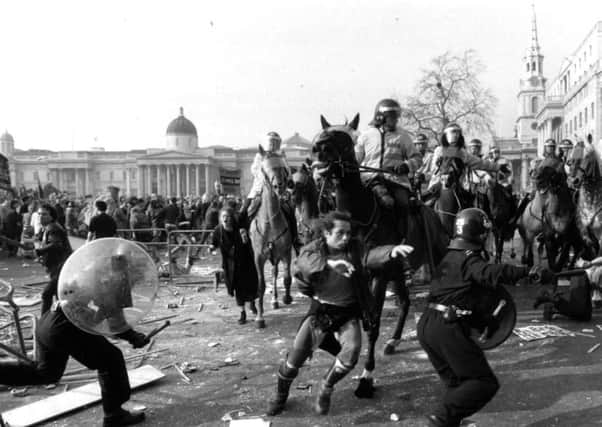Should the council tax be scrapped?


Campaigners claim the council tax is “discredited” and the Scottish Government believes it is “unfair”.
With the Holyrood-appointed Commission on Local Tax Reform is due report in the autumn on possible alternatives, the issue is back on the agenda.
Advertisement
Hide AdAdvertisement
Hide AdBut opinion remains divided on how it can be changed or whether it should be scrapped entirely.
The last thing lawmakers want to do is repeat the mistakes of previous reforms.
The infamous 1990 poll tax riot in London was the culmination of UK-wide protests against the introduction of the Community Charge by Margaret Thatcher’s Conservative Government.
That system would be scrapped in 1993 and replaced by the present council tax, which remains in place across Scotland, England and Wales.
It raises around 15p of every £1 that local authorities north of the border spend, with the Scottish Government providing the rest of their funding.
The amount each household pays is calculated on property prices from April 1, 1991.
There are eight council tax brackets. The lowest, A, covers homes valued up to £27,000.
The highest, H, covers any property valued at more than £212,000 - an increasing percentage of new homes, which are bracketed according to contemporary market rates.
Advertisement
Hide AdAdvertisement
Hide AdA new four bedroom house in Larbert can thus be valued in the same bracket as a palatial Victorian pile in Mayfair.
It’s a situation that campaigners and the Scottish Government want to change.
A 2014 report from the Joseph Rowntree Foundation claimed the council tax was regressive, taking a larger proportion of money from low income households.
“Property values have risen substantially since they were last assessed in 1991, but they have grown at different rates between different parts of the country, said Chris Leishman, co-author of the report.
“The design of the council tax means it taxes a higher proportion from cheaper properties than expensive ones, so is regarded as being both unfair and inconsistent.”
Critics of the system claim it was introduced in a rush by a Conservative government reeling from the public backlash against the poll tax.
A Scottish Government spokeswoman said: “Ministers believe the current council tax system is unfair – that’s why we have worked with our local government partners to freeze the council tax for the eighth consecutive year, providing £70 million per annum.
“All 32 councils have confirmed the continuation of the council tax freeze for 2015-16 delivering cumulative savings for an average Band D household, over the period 2008-16, of around £1200 based on the additional £70 million being provided each year.
Advertisement
Hide AdAdvertisement
Hide Ad“We have established the Commission on Local Tax Reform to consider council tax reform and replacement options. The Commission has cross-party and non-party membership and is due to report in the autumn.”
Glasgow-based thinktank Reform Scotland argued in a report published in August that Scotland’s 32 councils should be handed total control over local taxation through a range of other taxes.
Under its proposals, authorities could set their own council tax rates or get rid of them entirely in order to raise cash through other means.
With local taxation remaining a political hot potato, meaningful reform of the system must be handled with care.